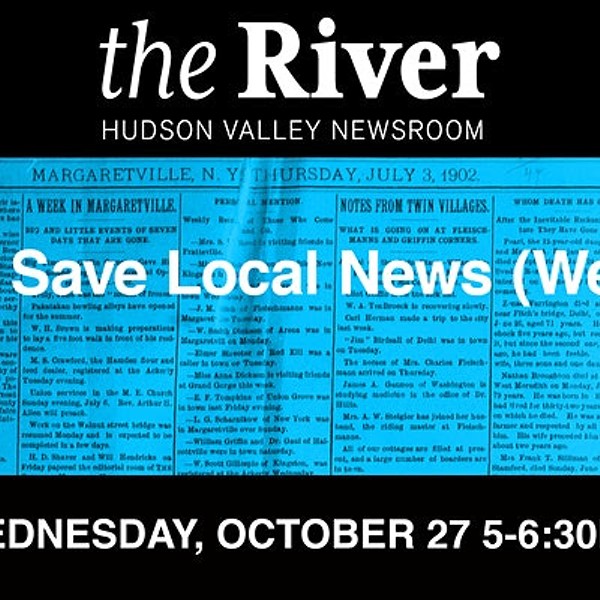In the early days of Chronogram some 5th graders visited the office on a field trip. The group of young explorers crammed into our one-room, between the tightly packed desks, computers, and pile of papers.
A gangly boy with dreadlocks and bright eyes asked, “What is a publisher?” The question took me by surprise, and I realized I had been too busy starting a magazine to consider it. After a long pause I answered the question with a question.
“Did you ever hear the expression ‘the pen is mightier than sword’?”
“Um, yes,” he replied.
“What do you think it means?” I asked.
“Well, I’ve heard of ninjas killing people with a matchbook cover…”
We laughed, and began a conversation about the power of ideas to effect change in the way people think and live; about how it is no coincidence that the word conception refers to both to the arising of a seminal thought and the beginning of a new life.
We talked about Johannes Guttenberg and Mein Kampf, about E. E. Cummings, and the Bhagavad Gita, and the power of publishing to foment both divisiveness and unity, violence and peace, hatred and love. We talked about the Fourth Estate, a term referring to journalists in relation to the other three power centers of church, nobles, and commoners, and the oft-quoted words of Parliamentarian Edmund Burke—“Yonder sits the Fourth Estate, and they are more important than us all.”
Publishers create the forums for the storytellers of the tribe. And there are innumerable ways for stories to be told. The emphasis can be on the limitations or the possibilities, the failures or accomplishments—for all sides of a story are present and available for amplification. The story the writer and publisher chooses to tell gives us our frame of reference and creates the mythologies to which we collectively subscribe and from which we live.
But sadly ours is a time when the role of publishing and journalism, like most real needs, have been co-opted by the interests of the financiers and their political proxies. Massive mainstream media consolidation has created a singular corporate agenda-driven voice that places focus selectively and often reinforces falsehoods, rather than bringing them to light. This is a disservice to the communities that support these organizations with subscriptions, attention, and advertising, and their failure to serve highlights a certain justice in their increasing demise.
Real journalism, as a reflector and sounding board for a community, is a societal need. It should not be provided based on profitability to corporations. It should be guaranteed, and guaranteed to be transparent about its agenda, for no media enterprise can avoid having a point of view, and advocating for it. There is no true objectivity in this realm, as a writer and publisher will, even unconsciously, highlight one set of facts over another.
This is why I depend on Democracy Now! for my regular source of news, for example. It has an overtly progressive, people- and worker-centered focus, which aligns with my own values much more than the corporate-controlled media’s reportage. As well, DN! is run by a not-for-profit organization and has no advertising interests to accommodate.
Chronogram too, has an agenda. It is expressed in a statement we worked long and hard to formulate—“to nourish and support the creative, cultural, and economic life of the Hudson Valley.” We aim to strengthen the community by using our ink to help build a stable local economy, as well as fomenting social awareness and interdependence.
The impact of a local media organization is not only in the realm of coverage given to the community. There is money involved. When a business spends advertising dollars locally, almost all that money is recirculated into the community through local employees, vendors, contributors, and owners—often into his or her own cash register. By contrast, budgets spent with national media companies like Gannett, Clear Channel, and Journal Register keep 30 percent in the community, at best. The rest is siphoned off to headquarters, and often to service crippling corporate debt to banks and private equity groups.
My conversation with the 5th graders taught me another thing—I am always publishing, and so are we all. Every word we speak, and each action we take, is broadcasting an idea, sentiment or desire. So yes, the official publishers have to take responsibility for what we express in media, and so do each of us individually have the chance to broadcast something truthful and positive through everything we think, do, suffer, and say.

















